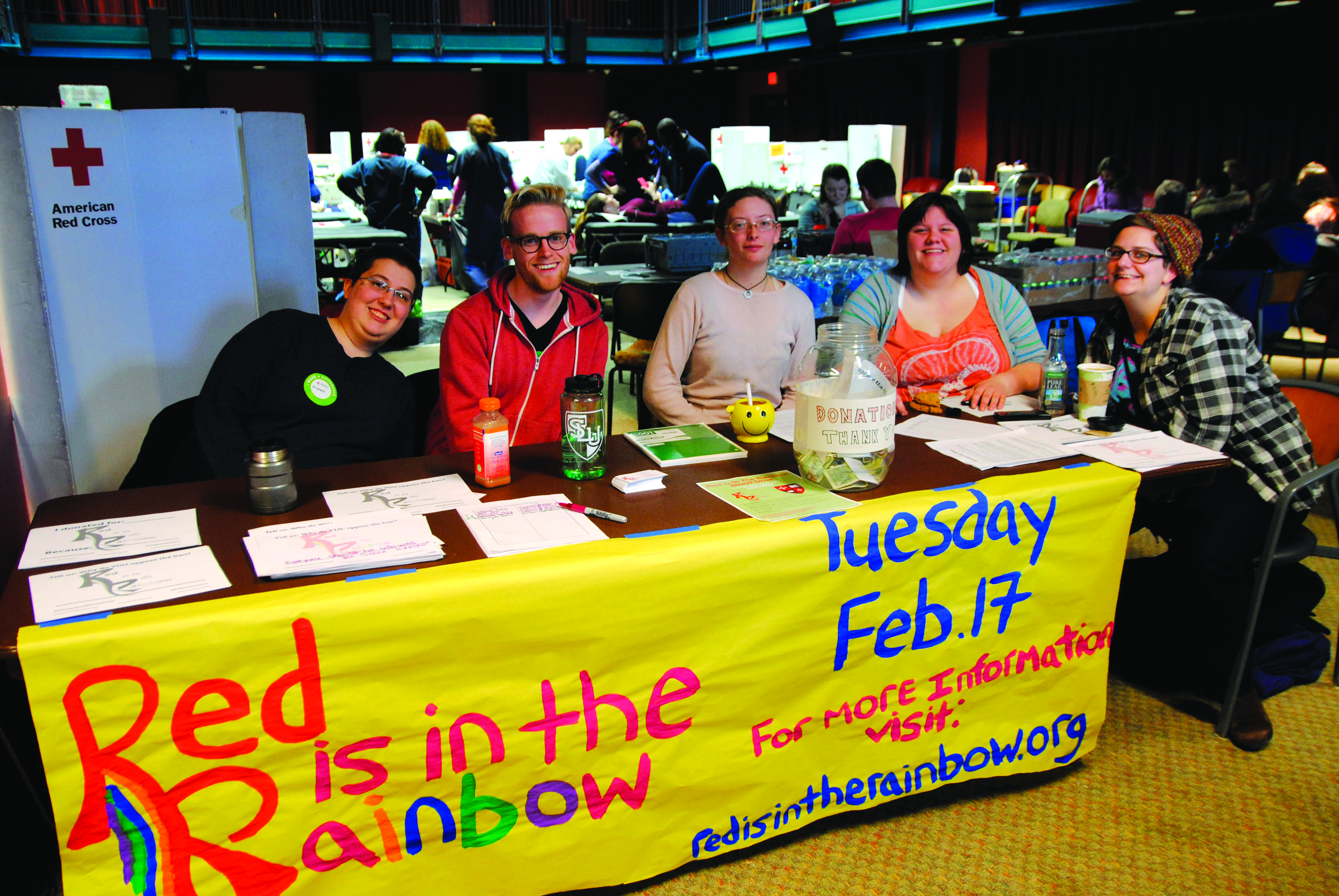By Amanda Korb
Staff Writer
This past Tuesday, February 17th, St. Lawrence University’s Pre-Health Club hosted an American Red Cross blood drive. In conjunction with the blood drive, Red is in the Rainbow rallied to raise awareness for homosexuals being allowed to donate. Red is in the Rainbow was established in 2011 to help fight for equity in blood donation regulations. The event was a success, with a pint of blood saving three lives apiece.
Blood is the essence of survival; consequently the demand for blood is high in the medical field. Organizations such as the American Red Cross help aid in feeding the need for blood by hosting events to provide opportunities for individuals to generously give blood. According to the Red Cross, there are approximately 9.2 million donors in the U.S. a year, a number that could significantly be increased should FDA regulations be revised.
In 1983, the AIDS/HIV epidemic hit the U.S. hard. As a result, the FDA banned men who have sex with men (MSM) from donating blood as preventative method to stop the viral spread. The FDA asserted that there was an association between MSM and the spread of sexually transmitted diseases.
Of course many will disagree with this assertion that claims that homosexuality is the sole cause of STDs. Gay rights advocates argue the ban is discriminatory. MSM, or homosexuals, are commonly compared to heterosexuals that have unprotected sex with prostitutes or people with multiple partners as exposing the U.S. blood bank to the same amount of STD risks. The latter group is still allowed to donate, within the boundaries of regulations. Mike Williams ‘18 reaffirms that tests done on blood provide a safe atmosphere for blood to be given, regardless of sexual preference.
Groundbreaking reformation recently occurred as of late December that established a giant turnover for not only MSM, but also for the quantity of available donors. MSM are now allowed to donate blood if they have been celibate for a full year. While this still restricts donors, the change is still significant. When Sarah Sauda ’18 and Delaney Spink ’18 were asked for their consensus on gays donating blood, each resolved as long as an individual is healthy then he/she should be allowed to contribute their blood. The change to the FDA regulations softly reflects such viewpoints.



